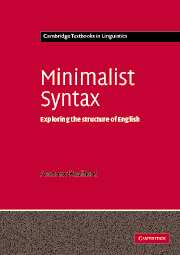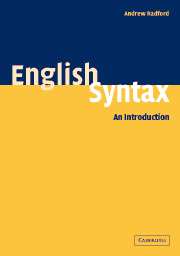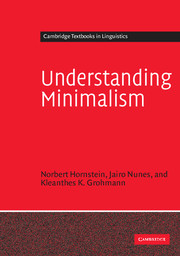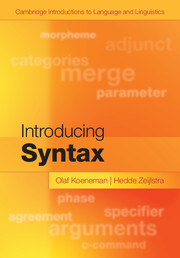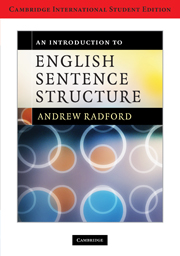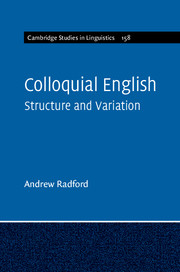Minimalist Syntax
Andrew Radford's textbook, Minimalist Syntax, provides a concise, clear, and accessible introduction to syntactic theory, drawing on the key concepts of Chomsky's Minimalist Program. Assuming little or no prior knowledge of syntactic theory, Radford takes students through a diverse range of topics in English syntax - such as categories and features, merger, null constituents, movement, case, and split projections - and shows how the 'computational component' works within the minimalist framework. Beginning at an elementary level, the book introduces grammatical concepts and sets out the theoretical foundations of Principles and Parameters and Universal Grammar, before progressing in stages towards more complex phenomena. Each chapter contains a workbook section, in which students are encouraged to make their own analyses of English phrases and sentences through exercises, model answers, and 'helpful hints'. There is also an extensive glossary of terms.
- Written in a very readable, concrete style, conveying complex syntactic concepts in a way that makes them more digestible for students
- Workbook section contains 'helpful hints' designed to avoid errors commonly made by students
- Contains a 40-page glossary of technical terminology
Product details
May 2004Paperback
9780521542746
528 pages
245 × 171 × 33 mm
0.83kg
2 b/w illus. 3 tables
Available
Table of Contents
- 1. Principles, parameters and universal grammar
- 2. Categories and features
- 3. Syntactic structure and merger
- 4. Null constituents
- 5. Head movement
- 6. Wh-movement
- 7. A-movement
- 8. Case, agreement and movement
- 9. Split projections
- 10. Phases.

